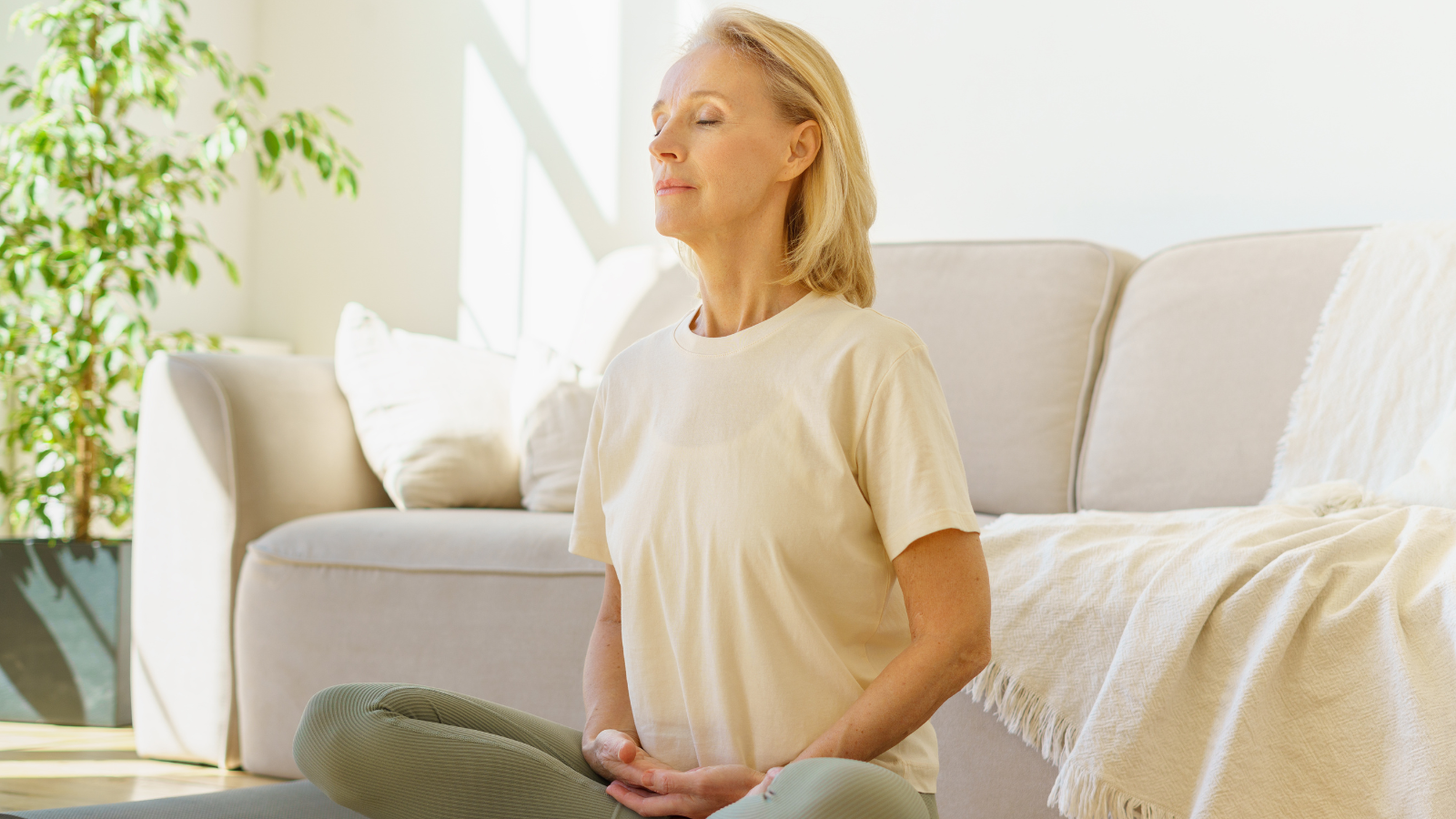Yoga Boosts Memory and Brain Function Study Shows

Concerned about keeping your full memory capacity and cognitive functioning as you get older?
Well, if you are a yoga practitioner, there is good news. A 2020 meta-analysis shows that for people without cognitive impairment, regular yoga practice can offer significant benefits on both memory and cognitive function.
As the number of yoga studies proliferates, a growing number of meta-analyses are able to chart the effects of yoga on one factor across not just one, but multiple studies.
The 2020 meta-analysis included 12 studies with a total of 912 participants, 73.9% female. Eleven of the studies were randomized controlled trials, which is the highest standard for reliable research evidence. Of the subjects, about one third had some degree of cognitive impairment, while two thirds did not.
When results were compiled across all 12 studies, they showed significant beneficial effects on a number of cognitive factors, including improved memory, better executive function, and enhanced attention and processing speed.
Which type of yoga was used? The studies involved had a wide variety of yoga practices, but they had one thing in common: a meditative focus while doing the postures.
This study adds to the evidence from previous studies on the benefits of yoga for cognitive and mental-emotional health.
A study published in the journal Mindfulness, for example, showed that both yoga and meditation can boost mood and increase cognitive performance.
Yoga and Meditation Study
Researchers at the University of Waterloo in Canada recruited a predominantly Caucasian, college-educated sample of adult women between the ages of 18 and 48 (mean 27.71 sd= 8.32) to participate in the study. To be included, women were required to have between 4 months and five years of hatha yoga experience.
Each participant completed a series of questionnaires about physical activity and their yoga and meditation experience. They were then asked to complete three 25-minute counterbalanced sessions of hatha yoga, meditation, and a control task of reading one or more “yoga culture” magazines. Yoga sessions included mindfulness meditation, followed by postures and concluding with savasana (corpse pose), and were taught by a certified yoga instructor. During each class, participants were repeatedly reminded to focus on breath and bodily sensations and balance effort with ease.
Guided meditation practice was taught in the supine position. During these meditation sessions women were asked to become non-judgmental observers of their experience, and were led through a present-focused awareness exercise where they were asked to pay attention to their thoughts and emotions with openness and acceptance. This was followed by a body scan during which they were asked to note feelings and bodily sensations.
Cognitive function was assessed using the Stroop interference task – a standardized measure of executive function and inhibitory control. Mood was evaluated using a short form of the adult version of the Profile of Mood States (POMS).
Research Says Yoga and Meditation Boost Mood and Cognitive Function

The study’s results showed that, for a sample of healthy, experienced female yoga practitioners, 25 minutes of either hatha yoga or mindfulness meditation significantly improved executive function. Interestingly, this effect was not detected 5 minutes after yoga and meditation practice but was found after a 10-post-session delay. Improvements in cognitive function did not differ significantly between yoga and meditation, but there was a slight trend toward greater positive change following hatha yoga.
Similarly, both yoga and meditation yielded similar improvements in mood, with yoga demonstrating slightly greater mood enhancement benefits than meditation. Neither cognitive performance nor mood were impacted by reading “yoga culture” magazines.
The results of this study are consistent with prior research with diverse samples of participants who associate yoga and meditation with greater positive mood and enhanced executive function. Regarding their inability to detect reliable changes in cognitive performance 5 minutes following yoga and meditation, researchers suggest that there may be yoga- or meditation-induced sedative effects immediately following practice that may render cognitive benefits indiscernible in the short term.
Because this study was constrained to a sample of predominantly Caucasian, well-educated women in early to middle adulthood, more research will be needed to determine whether enhancement of mood and cognitive function is experienced among diverse groups of participants.
Sources
Luu, K & Hall PA (2016). Examining the acute effects of hatha yoga and mindfulness meditation on executive function and mood. Mindfulness. DOI 10.1007/s12671-016-0661-2
 B Grace Bullock, PhD, E-RYT 500, is a psychologist, research scientist, educator, yoga and mindfulness expert, and author of Mindful Relationships: Seven Skills for Success – Integrating the Science of Mind, Body and Brain. Her mission is to reduce stress, increase health and well-being, and improve the quality of relationships. She offers classes, workshops, writing, and research that combine the wisdom of applied neuroscience, psychophysiology, psychology, and contemplative science and practice. She aims to empower individuals, groups, leaders, and organizations to reduce chronic stress and increase awareness, attention, compassion, mindfulness, and effective communication to strengthen relationships, release dysfunctional patterns, and unlock new and healthy ways of being. Dr. Bullock is also the Founding Director and Principal Consultant of the International Science & Education Alliance, an organization devoted to exceptional research, program evaluation, assessment design, strategic planning, and capacity building to support equity, programmatic diversity, and scientific integrity and promote effective leadership, decision-making, and social change. Bullock is a Certified Viniyoga Therapist and Faculty at the Integrated Health Yoga Therapy (IHYT) Training program. She is the former Senior Research Scientist at the Mind & Life Institute and former Editor-in-Chief of the International Journal of Yoga Therapy. For more information see www.bgracebullock.com.
B Grace Bullock, PhD, E-RYT 500, is a psychologist, research scientist, educator, yoga and mindfulness expert, and author of Mindful Relationships: Seven Skills for Success – Integrating the Science of Mind, Body and Brain. Her mission is to reduce stress, increase health and well-being, and improve the quality of relationships. She offers classes, workshops, writing, and research that combine the wisdom of applied neuroscience, psychophysiology, psychology, and contemplative science and practice. She aims to empower individuals, groups, leaders, and organizations to reduce chronic stress and increase awareness, attention, compassion, mindfulness, and effective communication to strengthen relationships, release dysfunctional patterns, and unlock new and healthy ways of being. Dr. Bullock is also the Founding Director and Principal Consultant of the International Science & Education Alliance, an organization devoted to exceptional research, program evaluation, assessment design, strategic planning, and capacity building to support equity, programmatic diversity, and scientific integrity and promote effective leadership, decision-making, and social change. Bullock is a Certified Viniyoga Therapist and Faculty at the Integrated Health Yoga Therapy (IHYT) Training program. She is the former Senior Research Scientist at the Mind & Life Institute and former Editor-in-Chief of the International Journal of Yoga Therapy. For more information see www.bgracebullock.com.



